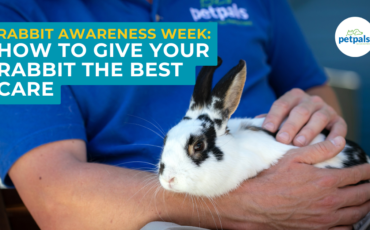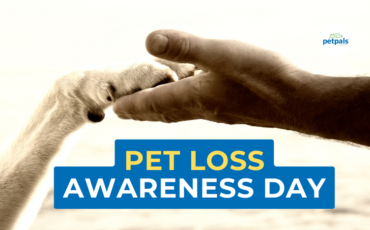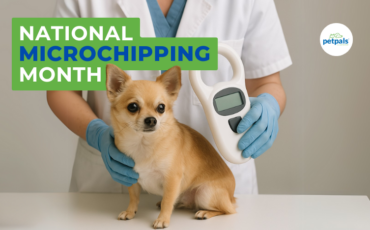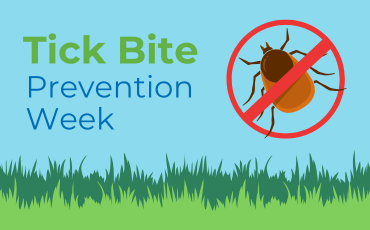Guide to buying a Puppy
18th September 2017

So you want to get a puppy……..Great! but before you do anything you need to answer these three questions honestly.
If you answer ‘No’ to any of them, then now is not the right time for you to own a dog (but you could consider a different kind of pet).
- Do you have time for a puppy? Can you offer it a good home? Is someone at home all or most of the day? If not, can you afford to pay a dog walking service to come in and walk the dog every day? The average price for a dog walk is between £9.50 and £13.00 depending on the location/area.
- Can you afford a puppy? Aside from the initial purchase price you also need to factor in insurance, vets bills and food every month. Read this very good article in the Guardian about the true cost of owning a dog (between £21,000 and £33,000 over its lifespan, depending on size and breed.)
- Are you prepared to adapt your life to fit around a dog for the next 15 years? No more impromptu weekends away or long days out of the house, always having to think ‘what about the dog?’ before you go away on holiday/out for the night etc. Who will look after the dog when you go on holiday?
Take this excellent (and quick) ‘test’ on the PDA website. It helps you determine if a dog is the right pet for you and suggests other pets that may be better suited to you, your lifestyle and time limitations.
Choosing a puppy
If you have answered all the questions above honestly and you are confident you can meet all the requirements of being a responsible dog owner, you now need to work out which is the best dog for you. This will depend on many factors:
- What kind of temperament of dog are you looking for? Bouncy and high energy to keep up with you as you spend days working on the farm or a calm and quiet breed for the inner city owner who lives in a smaller house? Walk around your local park, see what breeds other owners who live in your area have, talk to them, and ask them how the dog gets on in that environment. The Blue Cross has produced a very useful guide to different breeds and their personalities which you may find useful. If you are going for a cross-breed then you will have much less idea of their potential personality, but crosses are known for being great characters!
- Does anyone in your house have allergies? If so look for breeds that are recommended for those with allergies. However, do note what the The Asthma Society says….
- ’Some people believe that ‘hypoallergenic’ pets including cats and dogs are safe for people with asthma. While it’s true that some animals produce many more allergens than others, all animals produce dander, urine and saliva that can also trigger asthma symptoms. This means that they can’t be classed as truly hypoallergenic. A 2011 research study compared dust samples from homes with dog breeds reported to be hypoallergenic and those of homes with other dogs. The levels of dog allergen in homes with ‘hypoallergenic’ dogs did not differ from the levels in homes with other breeds. Contrary to common opinion, many of the ‘Doodles and Poos’ DO actually shed hair. Check out these two breed clubs for more information: http://www.uk-doodleclub.com/ http://www.cockapooclubgb.co.uk/ If allergies are an issue, spend some time with the breed you are researching, see what your reactions are like.
- Are you able to walk your dog for a couple of miles a day or will a quick walk around the park be more likely? Look for a dog that suits the time you have available. Some breeds NEED lots of exercise and to deny them that is unkind, turning them into a frustrated, unhappy dog. Other breeds like nothing more than curling up on your lap or by the fire with just the bare minimum of exercise. Do your research carefully. Landing yourself with the ‘wrong’ type of dog for you, could mean 15 difficult years or possibly a dog being rehomed. This How Much Exercise Does My Dog need? chart from the PDSA is very useful.

- How big is your home? Be realistic about the size of dog you could comfortably own, compared to the home you live in. A Newfoundland in a one bed flat might be a bit of a squash!
- Are you fussy about dog hair being shed all over your once pristine house? If so research carefully breeds that don’t moult. Avoid breeds like pugs that leave a trail of white hair everywhere!
- Would a dog that barked be a problem for you or your neighbours? If so research carefully the breeds you are interested in. A google search of the breed name and the word ‘bark’ should give you some indication of the problem or check out this list of the least and worst barkers on Barkingdogs.net.
- Why not visit one of the large dog shows that take place across the UK? With literally hundreds of breeds in one room, you will be inundated with information and get to talk to some experts in the breed.
- Discover Dogs 21-22 October 2017, Excel, London
- Crufts 8 – 11 March 2018, NEC, Birmingham
Buying a puppy
So now you have worked out that you are able to afford and look after a dog and you’ve got an idea of the size and temperament you need, it’s time to find the best, happiest, healthiest dog you can. The important thing to say here is, it is your job to do your homework; research, research and more research. There are some unscrupulous people out there breeding purely for money, not the love of the animal or the breed and it is up to YOU to spot them.
The RSPCA have produced some great advice for anyone looking to buy a puppy, including how to spot a puppy dealer’s advert. Visit their website here. Alternatively the Kennel Club have lots of information in their ‘Getting a Puppy’ pages here.
As you begin your research you’ll read all this advice and more, but here are some absolute Do’s and Don’ts’s.
- Never buy from a puppy farmer/dealer. Insist on seeing the pup with its Mum. A good breeder will be happy for you to ask lots of questions, come back a few times and generally spend time with you helping you make your decision. They will meet you in their home, with Pup and Mum together. If they offer to meet you in a car park or similar, steer well clear.
- Beware the online puppy sales websites. Some, but not all, will be puppy farmers. Proceed with extreme caution.
- If you are looking for a specific breed, The Kennel Club has set up the ‘Assured Breeder’s Club’ where you can find breeders who have signed up to their breeding standards. This is not a guarantee of health but is certainly a good start. You can also find links here to about all the different breeds and breeders, via the Kennel Club website. Beware, there may still be some not so ethical breeders in here, so do your research well.
- The Kennel Club are the only people in the UK who can issue a certificate of pedigree for a dog. Therefore if you are hoping to purchase a pedigree dog it will come with a Kennel Club registration certificate that should look like one of these. Familiarise yourself with them to avoid being fobbed off with a fake. Equally, read this article from Dog Net magazine about how easy it is for breeders to fake registrations and you may look at the entire subject of Kennel Club registration differently!
- A personal recommendation of a breeder is always a good; if a friend has had a pup from a breeder, has had a good experience throughout the whole process and has a happy, healthy dog as a result, put them to the top of your list.
- Generally, for each breed they will have their own club. Contact them for advice and recommendations on breeders. Champ dogs provide a link to all the breed clubs and have a useful guide to buying a puppy too.
- There are various different health screening checks applicable to each breed. Do your homework; find out which checks the breed of dog you are interested in should have. See the Kennel Club’s list of ‘Breed Specific Requirements and Recommendations’.
- All puppies, whether pedigree or cross breed can get sick; there are no guarantees, all you can do is plenty of research.
Pedigree vs Cross-Breed
Be aware, as you begin your journey into becoming a dog owner, you will need to keep your wits about you. Not only are there unscrupulous breeders out there, there are also some very polarised views about the superiority of the different breeds and emotions can run high as one person tells you only pedigree bred dogs should be considered, whilst others would never look at anything other than a cross-breed or a rescue. There is no such thing as a good dog or a bad dog, there is just the right dog for you. Don’t be bullied into buying a dog because someone else tells you it is the right thing to do.
Adopting a rescue dog
You could also of course look at rehoming a dog; be very careful if you have young children as you won’t know the dog’s history but if that is not an issue then rehoming a dog from a local animal shelter can be a very rewarding experience. At the end of the day, it is about finding the RIGHT dog for you and your circumstances; do your homework to try to find a healthy dog from a reputable, recommended, ethical breeder and, after that, you can look forward to 15 years of waggy tails and ‘happy to see you’ greetings from your new canine companion!
Good luck!
Useful Links
- RSPCA (Royal Society for the Protection of Animals) https://www.rspca.org.uk
- Blue Cross https://www.bluecross.org.uk
- PDSA (People’s Dispensary for Sick Animals) https://www.pdsa.org.uk
- Kennel Club https://www.thekennelclub.org.uk
ENDS September 2017
For further information about taking your dog abroad: https://www.gov.uk/take-pet-abroad/overview
To find your local Petpals please visit: https://petpals.com/
 Petpals has over 50 operations covering most of the United Kingdom. If you would like to know more about buying your own Petpals franchise. please click here for more information about how to make your dream of working with animals, come true.
Petpals has over 50 operations covering most of the United Kingdom. If you would like to know more about buying your own Petpals franchise. please click here for more information about how to make your dream of working with animals, come true.
Cat Sitting Services All Pet Services Franchise Opportunities Contact Us









